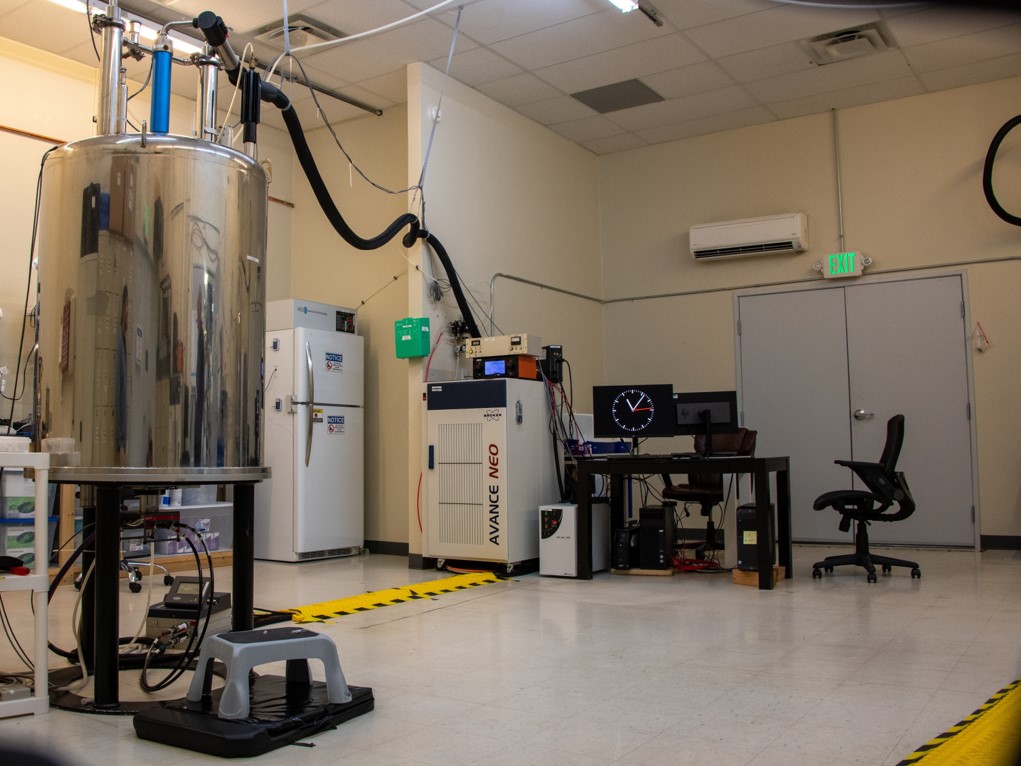KAS operates in a modern facility in Loveland, CO. The facility houses complete facilities for sample analysis, handling, preparation, and storage.
KAS utilizes the Bruker AVANCE NEO solid-state NMR spectrometer line for all of its analysis. The Bruker AVANCE NEO spectrometer runs the Topspin 4.0.8 GxPsoftware package for all the data acquisition and processing, and is a very robust and versatile solid-state NMR platform. One NEO system has three channels, and the other is a two channel system, supporting a complete range of NMR experiments such as 1H, 13C, 15N, 31P, and 19F nuclei to name a few. Both consoles are equipped with 500 W amplifiers for proton and 500 W X broadband amplifiers. Both KAS spectrometers operate at a 1H frequency of 400 MHz (9.4 T). The 400 MHz operating frequency provides higher signal to noise, faster data acquisition, and higher spectral resolution than the lower field (200 and 300 MHz) systems used by other laboratories.
KAS capabilities include a Chemagnetics Apex probe refitted with either a 4 mm or 7 mm Kel-F® Revolution NMR spinning modules. KAS also has an HF probe fitted with a 4 mm Vespel® module in a HF probe for 19F spectra. Both probes have variable temperature (VT) capability over the range of 5 – 90°C routinely, and can go to higher or lower temperatures if needed. For the 7 mm module, work is routinely done at 5 – 7 kHz MAS. For the 4mm work is routinely done up to 18 kHz MAS.
Our proximity to Revolution NMR and PhoenixNMR, both affiliated companies, ensures that we can obtain new or modified probes very quickly to implement new methods. KAS also utilizes a Revolution NMR HX probe with a 4 mm or 7 mm MAS spinning modules. For high potency samples (BAND 4/5), KAS is able to acquire data for all the traditional nuclei using either a 7.5 mm Vespel® module on the HF probe or a 7.5 mm module on a T3 probe. This allows for the rotor inside a rotor design, where the high potency sample is packed in the 3.2 mm rotor, inside a flak jacket, and then used inside the 7.5 mm rotor.




